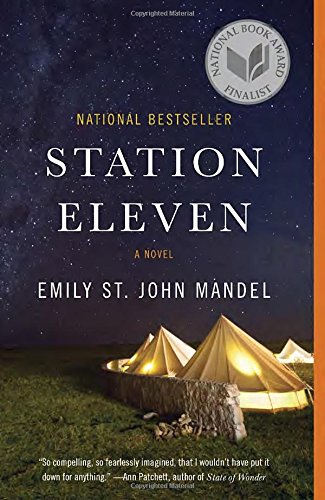Station Eleven’s storyline seamlessly moves between present day and the post-apocalyptic world that remains after most of the human population is decimated by a catastrophic world-wide pandemic. In a strangely non- "end of the world" book fashion, it starts off in the midst of a Shakespeare play and the Bard, through his works, seems to almost become a character in the story.
Through a masterful use of flashbacks and foreshadowing, author Emily St. John Mandel weaves a complicated tale, involving numerous characters and relationships that she wraps up so neatly at the end you feel as though you’ve been given a beautiful present. And her representations of what the end of life as we know it would be are so realistic; they are as believable as they are frightening.
Operating in the new world under a theory that “survival is insufficient,” those still alive have to face an existence that most of us have never contemplated much less lived. The desperate circumstances the characters face turn them into killers at times, but we understand that it is necessary for the greater good and are shockingly unbothered by it. Despite the bleak landscape of the "years after", Mandel’s story is one of hopefulness of the human spirit. One that has us believing that good will prevail against the evil that lurks close by, and that life will find a way no matter what.
A finalist and/or winner for multiple prestigious awards, this post apocalyptic tale reads like classic literature, and is absolutely worthy of your time.
Published: 2014
Publisher: Knopf/Vintage Books
Elizabeth's rating: 5 stars
